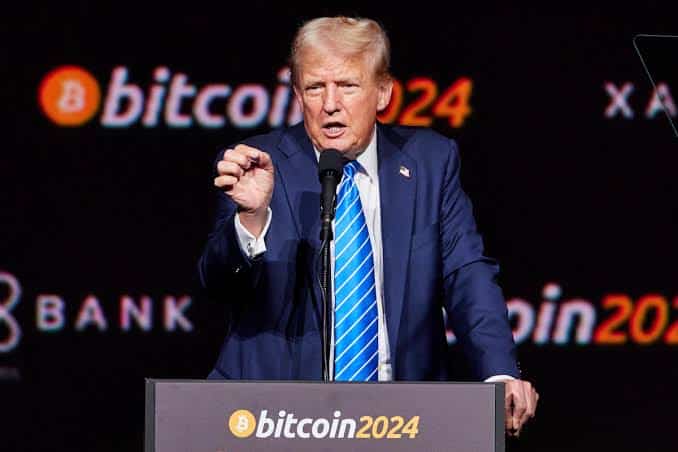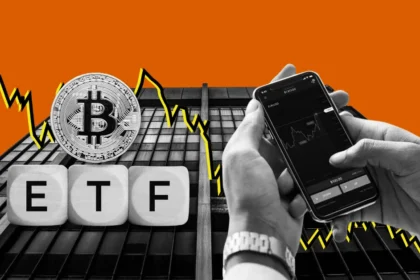In a candid interview with popular influencer Adin Ross, former President Donald Trump issued a powerful warning to the Biden administration about the strategic dangers of selling the United States’ crypto Assets. Trump’s insights are a wake-up call, shedding light on the broader implications of this decision and stressing the need for America to stay ahead in the fast-evolving digital asset sector.

The Strategic Risks of Selling Crypto Assets
During his conversation with Ross, Trump underscored the strategic importance of keeping and nurturing the US’s crypto assets. He warned that selling off large amounts of Bitcoin (BTC) and other cryptocurrencies could severely weaken the nation’s standing in the global market. Trump’s argument is clear: such a move could stifle the growth of the digital asset industry and undermine the US’s ability to compete with other nations, especially China.
“China is already ahead in many aspects of technology,” Trump cautioned. “If we don’t innovate and support our crypto asset sector, we will be left behind.”
Trump’s concerns are timely, as the US government has recently sold a substantial amount of Bitcoin, including assets tied to the infamous Silk Road. This decision has raised serious questions about the potential impact on market stability and the long-term strategic consequences for the US.
Innovation and Economic Stability
Trump has always been a champion of innovation in the digital asset sector. He often refers to Bitcoin and other cryptocurrencies as “modern currencies” and admires the forward-thinking individuals driving the market.
“It’s a very modern currency, it’s a very modern form, and I know a lot of very good people that are really into that world. They’re smart, they’re good people, and they think it’s going to be very beneficial,” Trump shared.
By retaining and supporting crypto assets, Trump believes the US can harness their long-term appreciation to tackle economic issues, such as the national debt. He suggests that the fixed supply of Bitcoin could help the US transition to a more stable monetary system over time.

Legislative and Market Impacts
The government’s recent sale of Bitcoin has led to significant market movements, sparking concerns about its effects on market trends and stability. According to reports, $2 billion worth of Bitcoin was moved from a government-associated wallet, raising questions about the broader implications for the cryptocurrency market.
In response, Senator Cynthia Lummis has introduced legislation to manage the US’s Bitcoin assets more strategically. Her proposal suggests the state should buy up to 200,000 Bitcoin per year over the next five years, reflecting the ongoing debate about the government’s role in regulating and supporting the crypto asset sector.
Trump’s Vision for the Future
At the Bitcoin 2024 conference in Tennessee, Trump reaffirmed his support for the cryptocurrency industry, highlighting the need for the US to invest in energy infrastructure to support future industries like Bitcoin mining and AI data centers. These investments, according to Trump, are vital for strengthening the energy grid and fostering innovation.
Fred Thiel, chairman and CEO of Bitcoin mining company Marathon Digital Holdings, expressed confidence that the Bitcoin mining industry would thrive under Trump’s policies. Other industry leaders, such as Jason Les of Riot Platforms, echoed similar concerns about the current administration’s approach to crypto assets.

Trump’s vision for the US is clear: a strong focus on digital assets and the technologies that support them. By encouraging innovation and maintaining a strategic hold on crypto assets, Trump believes the US can secure its economic future and prevent other countries from taking the lead.
Conclusion
Trump’s warning about the strategic risks of selling US crypto assets highlights the crucial need for innovation and strategic management in the digital asset sector. As the former president continues to advocate for the potential of Bitcoin and other cryptocurrencies, it remains to be seen how the current administration will respond to these challenges. For more insights and updates on this topic, stay tuned toThe BIT Journal.





























